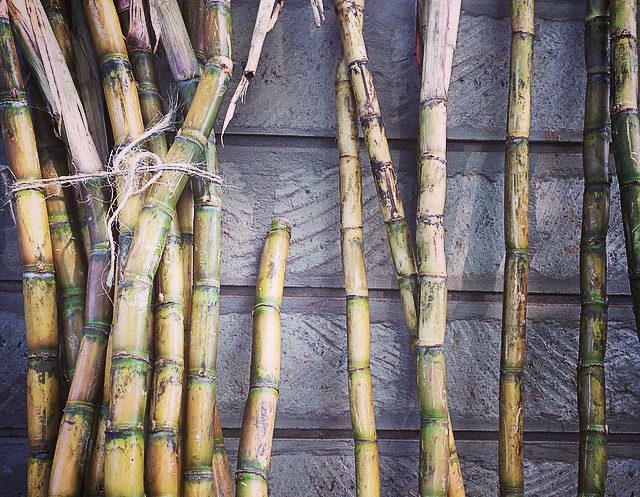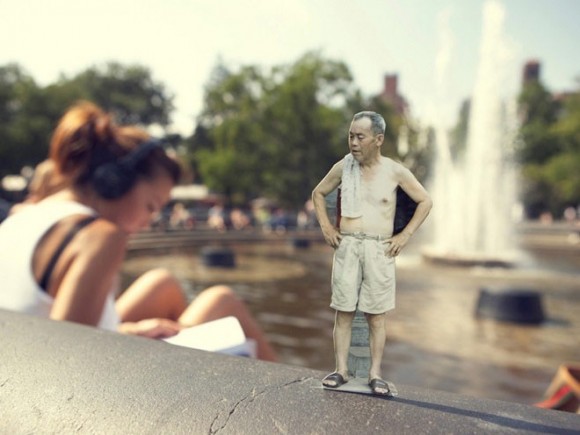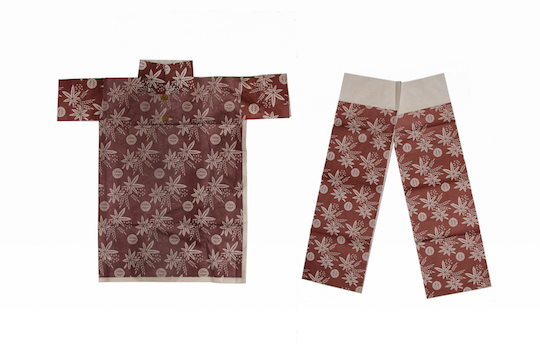When they called me spoiled, they meant that I was a rotten fruit, left out to waste in the humidity, sullied by forces beyond their control.

December 12, 2019
When I was seven years old, my grandmother divined that I had too much heat in my body. The heat, she believed, was the cause of my regular nosebleeds, my propensity toward incredibly high fevers when I fell ill, and my short temper. I threw many tantrums as a child, and several of these fits took place in restaurants. The goal was often revenge, exacted upon my parents after a scolding, a sharp word, a “no.” I had little face to lose as I screamed at the top of my lungs in a room full of irritated diners, humiliating my parents, who, in those public moments, could do nothing except wait for me to stop. One extreme case, as my mother tells it, saw me hollering with such conviction that the cooks stormed out through the kitchen doors armed with cleavers, convinced that a small child was being attacked.
Another tantrum, this time in a food court with my grandparents, ended in an overturned plate of duck rice. I flipped the styrofoam plate onto the floor, dissatisfied with the soft, pimpled skin that had been left on the sliced breast. The rice, slicked brown with gravy, splattered across the linoleum. The braised meat followed, pieces of duck tumbling out sheepishly under shards of broken styrofoam, garnished by wilting curls of coriander. Adults gasped and stared. I did not care, but I felt bad as the old uncle who worked at the food court wheeled over his mop and bucket to soak up the thick mess. My grandparents’ domestic help—our usual chaperones on excursions like these—helped him. They also reported this spectacle to my parents, and later that afternoon, my father brought out his cane. This was a thin rod of rattan, one of many sold cheaply in neighborhood provision shops. These canes come in varying thicknesses, each with an attractive plastic handle, and they are purchased for the sole purpose of disciplining children.
My father’s cane had a blue handle. He cornered me against a pillar in our apartment’s dining room, asking if I knew what I had done wrong. Nervous, and sick with fear and guilt, I could only squat with my back to the wall, the soles of my feet flush with the ground. I held out my right hand. He lashed it once, twice, violent and objective. This was not the usual furious caning of my thighs and back for something like uttering a bad word I learned from school. There was a dispassionate logic to it that I could understand: I had flipped the plate with my hand, and so my hand received the beating. Afterwards, my father gave me a mug of warm water. He gently told me that I was good for not attempting to evade punishment. The hot glass burned against my palm, where I had been whipped. I gulped it down, swallowing an urge to cry.
My grandmother prescribed boiled sugarcane as a corrective. Traditional Chinese medicine understands that food and bodies have inherent qualities of warmth and coolness. In Singapore, we have adapted this to our manner of colloquial speech: food is either “heaty” or “cooling.” People who harbor too much yin energy are too cold; they tend to suffer from poor blood circulation, lethargy, and aching joints. Heaty bodies, which experience an excess of yang—like mine—are too fiery. My grandmother mandated that I should drink boiled sugarcane daily to neutralize my heatiness, and that my mother should ensure that this practice continued regularly. Each afternoon, I would return from school, sweaty and itchy in my starched school uniform and too-tight shorts, and someone—sometimes my mother, often my nanny, Ann, whom my family hired shortly before I was born—would sit me down and watch me drink a full glass.
People in Southeast Asia, South Asia, and the Caribbean drink fresh sugarcane juice, made by grinding tough beams of sugarcane through a metal presser, cranked by hand. This produces a sweet, grassy liquid, often fully opaque, the colour of very strong jade with a cappuccino of white froth on top. (In parts of Malaysia I have had versions closer to amber.) Hawkers pour it over cubes of ice stacked as high as the cup itself. They will ask you if you want it with a wedge of lemon, and it is always perfect. But shoots of sugarcane, simmered in a large vat of water for three hours, produce a light yellow liquid the shade of healthy piss. The water is slightly thickened by the infusion of sugar and juice to the exact consistency of saliva, and as a child, I felt cheated by its sweet-but-not flavour. This was traditional Chinese medicine, not a refreshing tropical drink. Though my grandmother framed these beverages as remedies for my body’s internal fire, I read sugarcane as a punishment, meted out in return for my lawless conduct. She had decreed that my constitution was fundamentally heaty, and so, there would be no end in sight to the sugarcane.
My mother, and the revolving cast of domestic helpers hired by my family, carried out their assigned duty, but took pity on me. When I complained that I hated the taste, my mother allowed me to add Ribena—a blackcurrant syrup, its popularity in Singapore a lingering relic of British colonialism—for sweetness. As is so often the case with Singaporeans and live-in domestic workers hired from poorer countries in Southeast Asia—Indonesia, the Philippines, Thailand, Myanmar—my mother oversaw the administration of sugarcane until she was convinced that Ann and the others could replicate the recipe. Then she left it, like all other household tasks, to them. But where my mother’s concession was a few drops of Ribena per glass, creating a rose-tinted beverage with a light berry flavour, my nannies let me indulge in increasingly generous pours of the cordial in my glass of sugarcane, resulting in columns of purple-black liquid candy. This may have been partly a doting gesture, if we believe that maids truly do love the families that employ them. But it was probably strategic, in the same way that it is necessary for a nanny to convince herself that she loves her ward in order to fulfill the fundamental obligation of her underpaying job, which is to care. Where they might not have let their own children back home get away with the same excesses, for reasons of health or discipline, they found that, in Singapore, it was wiser to give in to the whims of their employer’s son, who was also, absurdly, their employer.
Ann and I still WhatsApp, but I don’t know what has happened to any of the other women who’ve passed through my family, who spent years of their lives away from their own, watching me and my siblings grow up. There was Patoya, who worked for and lived with us when I was seven until I was ten, and who let me try on her black bra, over my t-shirt, and then giggled as we scurried to my mother’s closet so I could slip on her black pointed-toe kitten heels. And Criselda, who watched Britney Spears music videos with me on MTV, when MTV still played music videos. But it was always Ann who I ran to after a caning from my parents, who quieted me and blew cool air on the skin where I had been lashed, who slept in the same bed as me and patted my thigh as I—sometimes for the drama of it, because I had read that they did this in Sweet Valley High or Babysitter’s Club or a Lawrence Yep novel featuring a young female character—cried myself to sleep, making sure to soak my pillow with tears. It would be proof, I thought, of my injury. Maybe if my parents saw a sopping wet pillow, or if I caught a cold from sleeping on it, they wouldn’t hit so hard the next time.
In addition to heaty and ill-tempered, my parents and grandparents often said I was spoiled. This problem was less resolvable in the form of a drink. I always thought that this was an odd accusation for them to level against me, since they raised me. Once, after my mother called me spoiled, I dared to shoot back, “Well, who’s the one who spoiled me?” She stared at me, dumbfounded. I almost expected her to say, well, Ann did. But now I realize that my retort made no sense. When they called me spoiled, they meant that I was a rotten fruit, left out to waste in the humidity, sullied by forces beyond their control. No one actively spoiled me, and yet, this is how I ended up: a crybaby who loved to dance and draw, who looked in the mirror too much, who tried on his sister’s blue velvet hairbands with barely any hair to hold in place, who walked with too-upright posture, who always insisted on tucking his shirts into his pants, and who would chide his sportier, rumpled older brothers to do the same. My parents were at their wit’s end as to how to undo it all: I was spoiled by the wealth around me, the excess and ease of my upbringing, and just as ruined by something that lived inside me, innate.
My love for Ribena did peel away as I grew older. Later in secondary school, I eliminated sweets from my diet, anxious about wanting to look like other boys, and wanting other boys to look at me. But I continued to drink sugarcane, out of habit, and I suddenly appreciated its not-sweet sweetness; the ghostly suggestion of its sugary origins slipping down my throat and away from my tongue. It tasted pure, and clean, and somehow essential. I continued to drink it every day, and throughout my teenage life, my mother made sure that there was always a jug of sugarcane in the fridge.
I remember my father hosting a high school reunion at our new home, all the old boys—as they called themselves—gathering together to see who had done what with the intervening years, even though everyone was already long caught up, had already heard everything from each other. There were whispers that one of their old classmates, Mark, was now living life as an out gay man. I remember seeing him arrive, so different from the rest, his hair trimmed short like a commando, his body a little too muscular for a middle-aged man in the early 2000s, his navy polo t-shirt shrink-wrapped over his rounded chest and biceps. The other men, geeky, anxious, long past athleticism, wore baggy shirts and trousers, post-office attire, aiming for professional but relaxed. Others, like my dad, wore loose, funky Hawaiian shirts. Mark had a necklace, and I noticed it because it was almost like the very one I wore when I was 12, that year itself, an engraved metal pendant on a shortish black leather cord. Sitting high on the collarbone, it was a gay man’s wildly inaccurate fantasy of masculine jewellery, a gay boy’s emulation of California, freedom, Abercrombie, surfers, The OC, the gardener from Desperate Housewives with spiked blonde hair and golden muscles who was caught in bed with Brie’s son on TV. Maybe the gay man was emulating this too. But seeing myself reflected in Mark meant that I was directly implicated when I watched my father shake his hand before directing him to the dining room for dinner. My father lingered in the living room, then quickly crossed to the bathroom to wash his hands like a man who had just touched unclean meat. This, I think, was part of what it meant to call me spoiled.
◻︎◻︎◻︎
Singapore has a law criminalizing any sex act between two consenting adult men. It is in Section 377A of the Penal Code, often called S377A for short. It states:
Any male person who, in public or private, commits, or abets the commission of, or procures or attempts to procure the commission by any male person of, any act of gross indecency with another male person, shall be punished with imprisonment for a term which may extend to 2 years.
S377A is no longer enforced by the state. But the government has resisted repeal, citing that Singapore is a conservative Asian society which is not yet ready to let go of tradition, as represented by this archaic, anti-gay law. This particular reasoning is a baldly ahistorical excuse because S377A is a holdover from British colonial rule, which officially ended in 1965. The law, which originated from British buggery laws, has been on the books since the 1930s. We shared it with India, the other crown jewel of the British empire, until they successfully ruled it unconstitutional in India’s Supreme Court last year. But Singapore shows no sign of shedding this colonial law, just as the settler state and its polity continue to protect other monuments to colonialism: our two statues of Stamford Raffles, Singapore’s colonizer; our Tudor-inspired bungalows and neoclassical hotels; our model of racial categorization which privileges white and Chinese people over Malay, South Asian, and other brown people.
Caning as state-sanctioned corporal punishment was put in law by the British as well, and retained by the Singapore government. In November 1993, 12 Singaporean men were arrested as part of a string of operations that targeted homosexual men in Tanjong Rhu, a secluded area in southeastern Singapore by the Geylang River. This was a known gay cruising area at the time, and young, handsome police officers—known as “pretty police”—were sent to pose undercover as fellow cruisers looking for a public tryst. These sting operations were swift and unforgiving: a police officer would entice a man by approaching or smiling at him, and once physical contact was made, the man would be arrested and charged with “outraging the victim’s modesty.” Of the 12 men, six of them pleaded guilty in court and were incarcerated, receiving sentences ranging from two to six months in prison. Each of the twelve was sentenced to three strokes of the cane. Finally, and perhaps worst of all, their identities—names, ages, and occupations—were published in The Straits Times, Singapore’s state-owned national newspaper, in an article published 23 November 1993: “12 MEN NABBED IN ANTI-GAY OPERATION AT TANJONG RHU.” Pictures of four of the men accompanied the article, and one of them later died by suicide. Multiple entrapment exercises had already occurred in the early 1990s, in various parts of Singapore, and the information of the accused had similarly been publicized in the news. The Tanjong Rhu incidents, however, were part of the largest operation, and the punishments were the most severe. Singapore continued, and continues, to uphold section 377A of the Penal Code which frames any and all sex acts between men as acts of “gross indecency.” Spoiled citizens asking for a caning with their bad behavior, just lucky that the government has so kindly decided to turn a blind eye, to spare them in the floodlights of the 21st century.
The summer before college—shortly after I turned 21—my older sister came out to my parents and then left the house, escaping to live with her girlfriend and her family. Many families in Singapore never inherited the homophobia of the state. But my sister and I hadn’t been as lucky, and we had long been secret allies, co-fugitives hiding in plain sight of our parents’ deep religious conservatism. Now, I had to fend for myself, my cover blown by association, their suspicions raised. One night, over a dinner of steamed turbot, my grieving mother turned on me. “You know,” she probed, chopsticks peeling delicate flesh from spindly white bones, “It’s good that you and your sister are close, but I don’t want you to be influenced…”
I snapped: “What do you mean, influenced? You can’t influence someone to become gay.”
She snapped, too: “Why are you so angry?”
“I’m just defending my sister, and I don’t subscribe to a religion that rejects people—”
“No, you tell me—why—why are you so affected—”
My father stepped in, ending the conversation. And then I knew that they knew, but did not want to hear it. I left the table, and withdrew myself from interactions with my mother for the rest of the summer. Our conversations reduced to testy exchanges over text: “What time will you be home? Who are you with?”
“Late. With friends.”
“Wow, always so many friends. Why not just don’t come home?”
When I did come home, I no longer found boiled sugarcane waiting for me in the fridge. I suppose her reasoning was that no one was ever around to drink it. I left for the United States just as haze began to blow in from the annual Indonesian forest fires, smoke suspended in the grey air, the smell of ash creeping in through closed windows. My father and my older brothers made the trip to help me settle into my dorm. My mother stayed in Singapore, alone, dwarfed in our family home. She claimed that she would be of no use, that she needed to supervise my little sister who was taking important placement tests that year. Ann, who had been with our family for 21 years, was also leaving. A few months after I left for college, she would finally return home to Manila to become a youth pastor. Before my flight, she knocked on my bedroom door and asked if she could pray over me. She put her hands on my shoulders and hoped that the Lord would show me his light. Then we hugged goodbye.
In the United States, I noticed my brother taking photograph after photograph: of the campus, of my room, of me. This struck me as unusual; his phone’s camera roll normally contained funny pictures or food. I asked him what he was doing. “Mom asked me to send her pictures,” he replied. But my mother and I continued to suspend communication that fall. My father called me from home every week, and whenever he tried to get my mother on the line, she made thin excuses. “She says she’s busy baking for church,” he would relay apologetically.
“It’s OK, dad,” I usually sighed. “I should get back to work, anyway.”
The rest of the year went as well and as poorly as one could expect. I discovered that American friendliness did not translate into American friends. I missed food from home, and I had no appetite, but it got cold and the dining hall was a buffet. I put on weight that I didn’t want. I got A’s but dropped a class. I was always tired, very lonely, and often cruel to my long-distance boyfriend.
In February, the Malaysian and Singaporean Association at my school held a party for the lunar new year. There was chicken curry, chap chye, cereal prawns, Fanta Orange, pineapple tarts. After we cleaned up the event in the international students’ center, I was tasked with storing the hotpot equipment. It was freezing, and I had a baby pink scarf wrapped around my neck, the closest thing to red that I had for the new year. The hotpot was huge, and I had to carry it with both hands while I trudged through ice. About two blocks away from home, I heard an unfamiliar voice call out behind me: “Hey!”
I turned, following the sound, thinking I had dropped something, already feeling grateful and embarrassed. A man had gotten out of his car, a black van, and was standing by the street yelling at me. “Walk like a fucking man, faggot. Stop walking like a little bitch.”
I was confused for just a moment, and then I turned sharply and walked home very very fast. I sat on the couch. My roommate wasn’t home and my boyfriend wasn’t responding. I took off my scarf and cried, then I called my mother. She picked up. “Hello?”
“Hi mom.”
“What’s wrong?”
“Nothing. Um, a man shouted at me on the street.”
“Why? What did he say?”
“I’m not sure.” I didn’t know how to say it. “Well, I think it was because… I think it was something racist.”
“Oh no, but you’re okay?”
“Yes.”
“Okay. America is like that. You know, when I was going to school in California, guys would shout at me too, from their cars.”
“What would they say?”
“Oh, they would call me chinky, pull their eyes, you know.”
“Yeah.”
“What did he say to you?”
“I… ” I began to cry again.
“It’s okay. I know it doesn’t feel good, but just remember that he doesn’t know you, okay? They just don’t know. I know, okay? Mommy knows. Don’t cry. It’s okay.”
“Okay.”
◻︎◻︎◻︎
My mother and I didn’t speak very much for the rest of the semester. Eventually, I flew home for the summer. I was not surprised to see her standing dutifully by my father at the arrival gate. We hugged formally, our bodies still held at an awkward distance. On the car ride home, air conditioner drying my sweat, my father dogged me with questions about classes, fat Americans, and Panda Express. My mother’s only question—really a statement phrased as a question—was, “I heard one of your lecturers is a big supporter of the transgender, LGBT movement?” She had heard this from a family friend who lived in New York, with whom I’d had dinner and talked about classes. I kept quiet. She fell silent too, while my father continued to make conversation. When we got home and stepped out of the car, the early morning humidity felt like swimming back into another world. I went to the kitchen, thirsty from 24 hours of travel—a trip I would continue to make every year for the rest of college. They had bought some of my favorite foods to welcome me home: nyonya bak chang, sticky rice dumplings steamed in bamboo leaves; tau huay, a wobbly beancurd pudding bathed in ginger syrup; curry puffs, flaky pockets of pastry stuffed with curried potato and slices of boiled egg. My mother wordlessly went upstairs. On the top shelf of our fridge sat a full pitcher of boiled sugarcane, clingfilm still stretched carefully over its mouth. It was pale and clear, nearly golden in the overhead light of the refrigerator, and I knew that this was for me, too. I took it out of the fridge, peeled off the thin plastic, and poured myself a glass. The liquid lapped against the sides of the pitcher; condensation formed instantly in the heat. A fat water droplet began to trickle down, and I reached out to wipe it away. It pressed cool against my palm.



